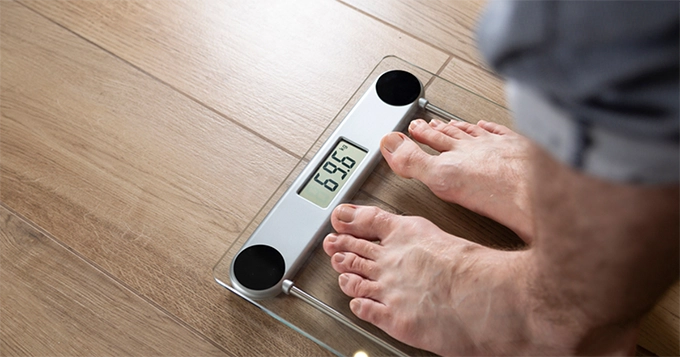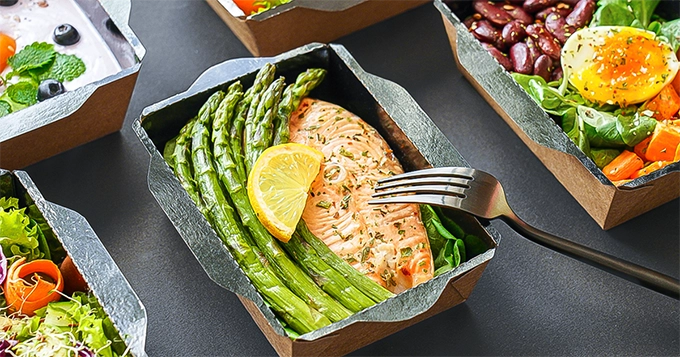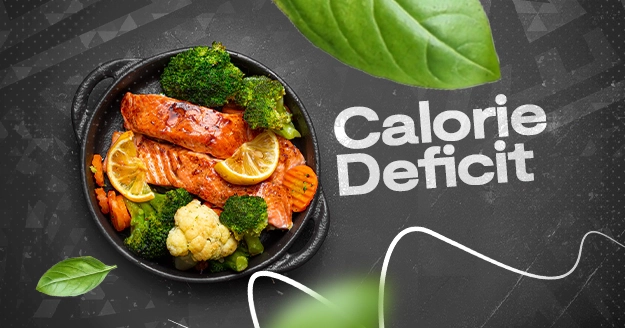Calorie deficit meaning
If you want to go on a calorie deficit, meaning to lose weight, there are three ways to do it: consuming fewer calories than what you normally burn in a day, increasing your physical activity to burn more calories than you consume, or both.
Benefits of calorie deficit
There are several other benefits of being in a calorie deficit aside from weight loss.
Improved cardiovascular health:
Consuming fewer calories lowers blood pressure and may reduce the risk of developing heart disease.
Improved insulin sensitivity:
Insulin resistance means your body is more likely to store the food you eat as fat. Being in a calorie deficit improves insulin sensitivity and reduces the incidence of diabetes and related metabolic disorders
Possible increased longevity:
Research evidence shows that long-term energy restriction in lean and obese subjects improves insulin sensitivity, a mechanism by which calorie deficit may act to extend the lifespan
Reduced inflammation:
When you gain weight, inflammation increases which can lead to leptin resistance and insulin resistance. People who reduced their daily calorie intake by 10 to 20% had lower levels of chronic inflammation markers. Avoiding sugary and processed foods also reduces inflammation.
How calorie deficit leads to weight loss
Whenever you engage in physical activities, you use up energy by burning calories. Burning calories can aid you in weight loss. Going on a calorie deficit means you have fewer calories to burn.
This is why physical activity (such as exercise) paired with having a calorie-deficit diet plan can help you achieve your desired weight.
How to calculate calorie deficit
A good rule of thumb is subtracting 500 from your daily calorie intake. Say, for instance, if the calorie you need each day is 2,000, your daily calorie goal should be 1,500 for weight loss.
Tips on how to be in a calorie deficit
- Diet
Eat low-calorie but nutrient-dense foods so you can easily avoid overeating by feeling satiated with a smaller amount of calories. Foods include vegetables and fresh fruits. Avoid consuming processed and packaged foods such as sugary drinks and junk food high in trans fats.
- Exercise
One of the most important ingredients to a successful and sustainable weight loss plan is exercise. More physical activity increases the number of calories your body uses for energy. Exercise, combined with a reduction in the number of calories you eat, creates a calorie deficit that results in weight loss.
- Avoid crash dieting
Cutting your calorie intake by not eating enough will not result in long-term weight loss, and you may feel weak and tired. A lack of calories forces your body to slow down its metabolism, making weight loss more difficult. Take your time and aim to lose 0.5 to 1kg per week.
- Cut portion size
Having calorie deficit meals does not mean starving yourself by skipping meals. One of the best ways to reduce calories is by reducing your meals’ portion sizes.
- Stay hydrated
Drinking water may boost your metabolism, suppress your appetite, and make exercise easier and more efficient. Drinking a glass of water before meals can also help with portion control. Also, drinking water or green tea around 30 minutes after eating will aid in your digestion.
Conclusion
A calorie deficit meal plan may help you manage your weight more effectively, but it is not a universal or long-term solution.
Before changing your diet to any restrictive eating plan, consult with your healthcare provider first. They can assist you in developing a plan that meets your specific needs and goals while reducing the risks of extreme calorie restriction.
Calorie deficit works if you’re still getting the nutrients your body needs to function and if you use it to improve your overall health in the long run rather than just a quick fix to achieve your weight loss goals.












